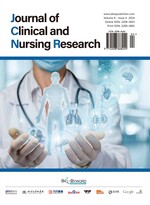Abstract
Objective: To analyze the effect of problem-oriented nursing intervention on patients with lower extremity arteriosclerosis obliterans (ASO) in vascular surgery. Methods: The clinical data of 128 patients with lower extremity ASO in vascular surgery were selected and randomly divided into groups A and B, with 64 cases each. Group A is the control group, and Group B is the observation group. Group A received the routine nursing intervention, and Group B received the problem-oriented nursing intervention. The compliance, self-care ability, psychological state, quality of life, and nursing satisfaction of the two groups of patients were evaluated based on various indicators. Results: After the intervention, the evaluation of self-care ability (ESCA) score of the patients in Group B was higher than that of Group A, and the symptom checklist-90 (SCL-90) score was lower than that of Group A. The differences were significant (t = 10.019, t = 3.118, P < 0.01). After the intervention, the World Health Organization Quality of Life Brief (WHOQOL-BREF) index scores of the two groups increased and the increase in Group B was significantly higher than Group A (P < 0.001). The compliance rate of Group B (62/ 96.88%) was higher than that of Group A (52/ 81.25%), and the difference was extremely significant (χ2= 8.020, P < 0.01). Conclusion: Problem-oriented nursing intervention for patients with lower extremity ASO in vascular surgery improved the patient’s self-care ability, and quality of life, reduced the patient’s negative emotions, and enhanced their overall satisfaction.
References
Ming D, 2017, Diagnostic Value of 3DCE-MRA for Arteriosclerosis Obliterans of The Lower Limbs. Hebei Medicine, 23(2): 315–317.
Vascular Surgery Group of the Surgery Branch of the Chinese Medical Association, 2015, Guidelines for Diagnosing and Treating Arteriosclerosis Obliterans of the Lower Limbs. Chinese Medical Journal, 95(24): 1883–1896.
Zeng M, Xu S, Zhu H, et al., 2018, Application of Comprehensive Nursing in The Perioperative Period of Endovascular Interventional Treatment of Lower Extremity Arteriosclerosis Obliterans. Journal of Wannan Medical College, 37(3): 303–305.
Zheng C, Shang Y, Wang J, 2019, Effects of Mindfulness-Based Stress Reduction Therapy on Anxiety and Sleep Quality in Patients with Lower Limb Arteriosclerosis Obliterans. Chinese General Medicine, 17(6): 997–999 + 1045.
Huang S, Lu X, Cheng Y, 2020, Effect of Pain Nursing Intervention on Postoperative Pain in Patients with Lower Limb Arteriosclerosis Obliterans. Chinese Journal of Geriatric Multiple Organ Diseases, 19(1): 17–20.
Wen Z, Liang D, Li W, et al., 2019, Comparison of the Efficacy of Drug-Coated Balloons and Bare Metal Stents in Treating Lower Extremity Arteriosclerosis Obliterans. Journal of Xinxiang Medical College, 36(4): 361–363.
Tang W, 2019, Analysis of the Clinical Nursing Value of Perioperative Nursing Intervention in the Interventional Treatment of Lower Extremity Arteriosclerosis Obliterans. Chinese Community Physicians, 35(28): 169–170.
Zhou H, Zhang M, 2023, The Application Value of Problem-Oriented Nursing Intervention Model in Patients with Severe Pancreatitis. Journal of Naval Medicine, 44(4): 420–423.
Shao M, 2023, Effect of Problem-Oriented Nursing Model on Preventing Hypoglycemia During Hemodialysis in Diabetic Nephropathy. Journal of Anhui Medical College, 22(2): 72–74.
Yang F, Shen F, Wang Y, et al., 2021, Effect of Problem-Oriented Holistic Nursing Intervention on Medical Compliance Behavior and Disease Knowledge Mastery of Elderly Patients with Coronary Heart Disease. China Medical Herald, 18(34): 168–171.
